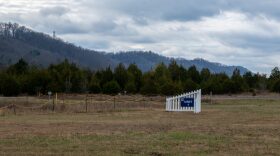Gas and oil companies are now closer to being able to build pipelines without local interference.
A Tennessee legislative committee approved a bill Tuesday that preempts local governments from stopping—or really even changing—fossil fuel projects that would impact their environment and communities.
“This bill, as presently drafted, does more than just prohibit local governments from banning certain types of infrastructure. It says they can’t do anything that would impair the development of that type of infrastructure,” said George Nolan, an attorney at the Southern Environmental Law Center.
This bill wasn’t out of the blue. Last year, an oil company, Plains All American, wanted to build a 49-mile pipeline to carry oil through the Memphis area to the Valero oil refinery, which is one of Tennessee’s biggest climate polluters.
The proposed route would have impacted several mostly Black neighborhoods in Memphis, where the companies expected to “more easily exploit” the communities than a suburban counterpart with more economic and social means, according to Justin J. Pearson, an environmental activist in Memphis who fought the pipeline.
“It’s a community that was called the ‘path of least resistance’ by the pipeline company,” Pearson said.
This project was cancelled, days before the Memphis City Council and a county committee were supposed to hear ordinances that would effectively stop the pipeline. (Months later, the Shelby County Commission passed a slightly watered-down ordinance that requires 1,500-foot distances between pipelines and residential communities.)
The bill sponsors said this new legislation was in response to the defeated pipeline in Memphis. Sen. Ken Yager, R-Kingston painted these projects as economic issues burdened by local environmental concerns over fossil fuels.
“Sometimes that campaign against fossil fuels has manifested itself in some local governments getting involved in what should otherwise be a statewide scope,” Yager said.
Environmental advocates suggested the bill instead undervalues resources like groundwater. The Memphis pipeline project, for example, would have affected the drinking water supplying Memphis Sands Aquifer.
“We need to be able to protect our resources and our people and our communities and these bills are doing just the opposite,” said Allison Stillman, a Nashville-based environmentalist with the Climate Reality Project.
Although this bill came in response to an oil pipeline project, it would affect the state’s future natural gas production, another fossil fuel. The Tennessee Valley Authority is considering replacing its retiring coal plants with gas, which is extracted from the earth via drilling and transported to power plants via pipelines.
Kinder Morgan, a corporation that owns many pipeline companies like Tennessee Gas, is planning to build a pipeline through Dickson, Houston and Stewart counties to TVA’s Cumberland Fossil Plant. (However, TVA isn’t supposed to choose how to convert the coal plant until it issues a finalized Environmental Impact Statement later this year.)
After the Senate committee approved the bill on Tuesday, Pearson said he wasn’t surprised. But he was feeling a little less hopeful than the day before.
“The arguments that are being made by the legislature are wrong, inaccurate and untrue. And the truth is that this legislation is written by pipeline companies for pipeline companies, and we as a state have to fight that,” he said.




